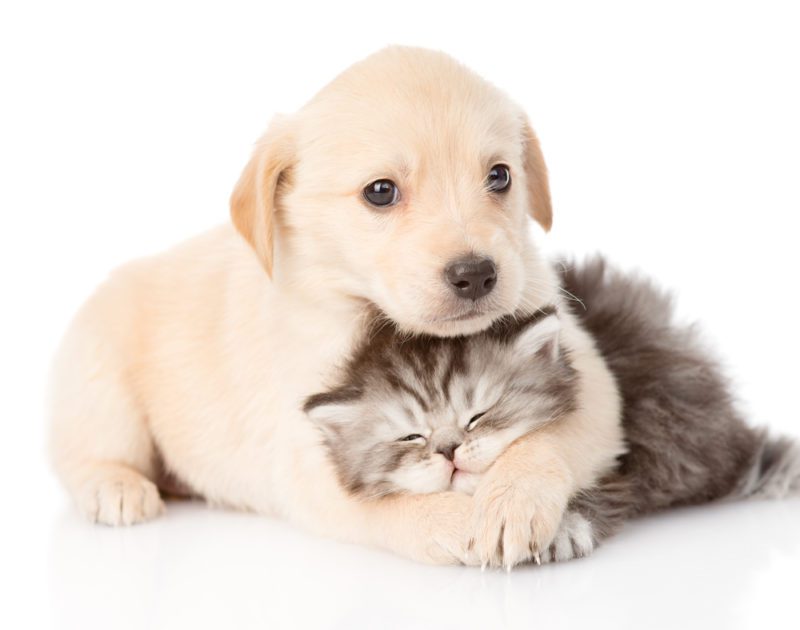
Socialization means learning to be part of society. When we talk about socializing pets , it means helping them learn to be comfortable as a pet within human society – a society that includes many different types of people, environments, buildings, sights, noises, smells, animals and other pets.
The critical period for socialisation for a puppy is at 3-14 weeks of age and 3-9 weeks of age for kittens. During this period a puppy/kitten needs to be slowly introduced to all the different things that he may encounter in life. Socialising your ultra-cute pet early on will make dog or cat ownership much easier for you!
Why is socialization important?
- Builds confidence.
- Mental stimulation.
- Makes life changes easier: death of a loved one, arriving of a baby, moving house etc.
- Makes vet visits easier.
- Travelling in a car with pets is made easier.
- Reduces aggression towards other pets.
- Stops visitors and new guests (especially those anxious around dogs or cats) from feeling uncomfortable being around an ill-mannered or overexcitable dog.
Socializing a puppy
- Look for a puppy school with a well-experienced teacher that will aid in socialization in a safe environment. NEVER choose a puppy school that uses punishment as a training method.
- Take your puppy to the vet for visits or even just to socialize.
- Take your puppy to friends to visit their pets, different people and experience a car ride.
- Once your pup had all their vaccines take them for a walk around the neighbourhood or to a doggy park.
- Host a puppy party! Invite friends and family over, play some music, toss some streamers, and pass your pup around.
- Take your pup on car rides through different neighborhoods, drive-thrus, car washes, and out into the country where he’ll see and smell a variety of farm animals.
- Arrange play sessions with other puppies and adult dogs who you know are healthy and friendly.
- Feed your puppy a nutritious diet like Ultra Pet Premium Recipe for Large, Medium or Small Puppies or Optiwoof Puppy Food. This will ensure they have all the energy and alertness for meaningful play and connection.
Socializing a kitten
- Keep kittens initially confined in a small room.
- Frequent soft touch.
- Talk often to your kitten.
- Let them get used to a cat carrier. Reward good behaviour (you can use a few Ultra Pet kitten pellets).
- Let them visit the vet.
- Let friends visit you to meet your kitten.
- Introduce your kitten slowly to all pets in the household.
- When you socialize your pet enjoy the experience!!! Be patient and do it at your own pace. Contact a veterinary behaviourist if you struggle.
Watch our in-house animal nutritionist, Dr Carra Walters, as she discusses ways to keep your pet friendly and fear free in her Paws & Effect podcast. We hope you enjoy the journey of socializing your pet!